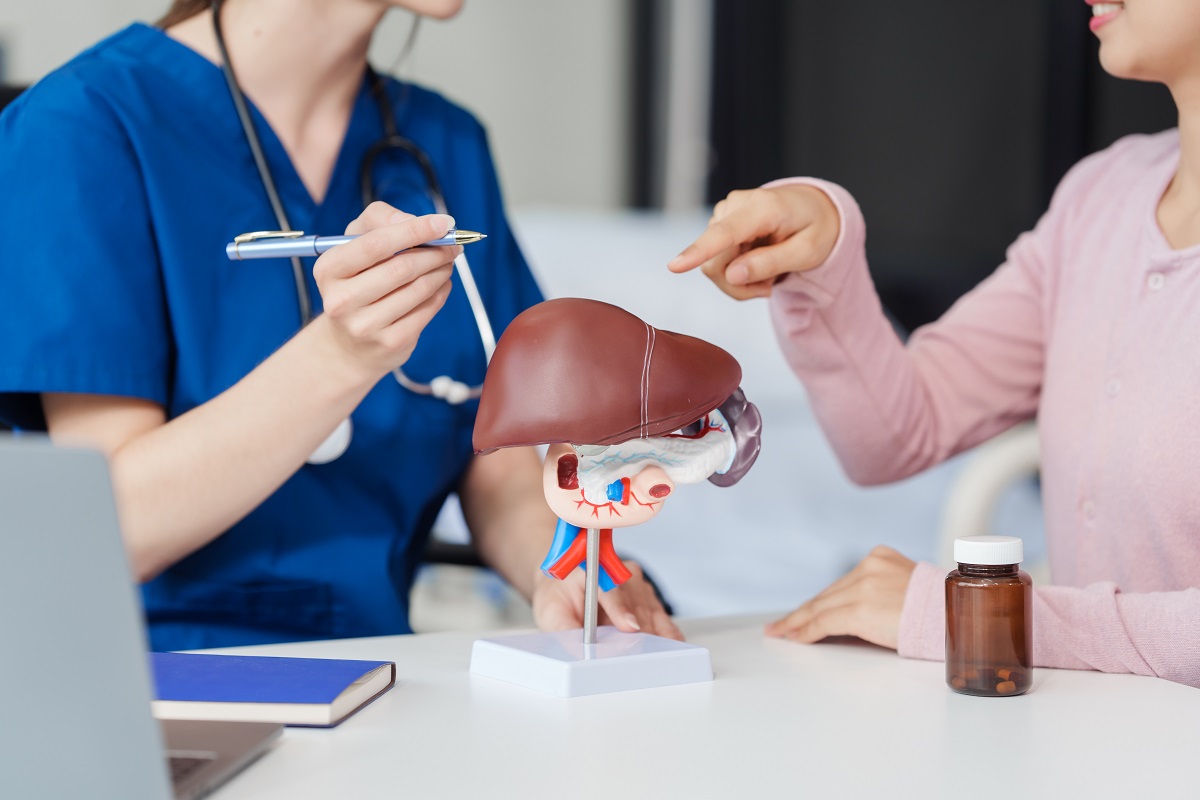This is a very rare genetic disorder that provokes life-threatening swelling (inflammation) to the brain and liver. It is known as Reye’s syndrome or Reye syndrome. Commonly, it affects children and teenagers after a viral infection (such as flu or chickenpox) but can happen at any age. Confusion, seizures, and loss of consciousness are the most dangerous symptoms that require medical attention immediately. One way to save the lives of people who suffer from this syndrome is early diagnosis and treatment.
As per studies, Aspirin is a medicine that can lead to Reye syndrome. That’s why it is not recommended to give your child this medication to relieve the symptoms (such as fever, pain, and others). Despite Aspirin being approved to be used in children older than 3 years old, better discuss it with your healthcare professional. Never give Aspirin to your children while they recover from symptoms caused by flu or chickenpox.
Commonly, doctors recommend Ibuprofen or Acetaminophen to relieve fever and pain instead of Aspirin.
Symptoms
A decrease in blood sugar levels occurs in those who have Reye syndrome. At the same time, acidity and ammonia levels increase. As a result, it can provoke swelling of the liver and buildup of fats. Moreover, swelling of the brain also can happen in those who suffer from this disease and it usually leads to loss of consciousness, convulsions, and seizures.
Commonly, the symptoms start within 3-5 days after viral infection onset.
Early Symptoms
The symptoms appear depending on how old the child is. For instance, diarrhea and rapid breathing can appear in children younger than 2 years old. Persistent vomiting and sleepiness can occur in older children and teenagers.
Other Symptoms
More serious symptoms commonly appear when the Reye syndrome progresses. Examples include:
- Behavioral changes (including irritable, aggressive, or irrational behavior)
- Confusion
- Seizures
- Reduced consciousness level
- Excessive sluggishness
- Arm or leg weakness
Previous symptoms are considered a medical emergency.
It is advised to seek medical attention immediately if the following symptoms occur. Examples include:
- Sudden vomiting
- Unusual drowsiness
- Loss of consciousness
- Sudden behavior changes
Causes
Experts do not know the exact cause of Reye syndrome but Aspirin is the most commonly associated with this genetic disorder. Sometimes, people can experience this syndrome due to an underlying disease such as metabolic disorders. It usually happens without taking Aspirin.
One of the most common metabolic diseases that provoke Reye syndrome symptoms is medium-chain acyl-CoA dehydrogenase (MCAD) deficiency. When MCAD occurs, the body cannot break down fatty acids due to the lack of an enzyme or its poor work. Thus, if people with MCAD use Aspirin, it may trigger Reye symptoms.
In some cases, this syndrome can happen after viral infections including influenza, chickenpox, or others. Additionally, if you are exposed frequently to toxins (including herbicides, insecticides, or paint thinners) it also can contribute to Reye syndrome. In any case, toxins cannot cause this genetic disease.
Risk Factors
When the following factors happen simultaneously, the child’s risk of getting Reye syndrome elevates. Examples include:
- Administering Aspirin to treat viral infections such as upper respiratory infection, flu, or others.
- You or your children experience a metabolic disorder (including MCAD or another mitochondrial function disorder)
What Are The Possible Reye Syndrome Complications?
While most children and teenagers survive with Reye syndrome, brain damage fluctuates among them. Therefore, if you ignore the symptoms and do not receive treatment as soon as possible, death can happen within several days. Talk with your healthcare professional for more details.
Prevention
One effective preventable method is to be careful when giving your child medicines to treat other conditions or symptoms. For instance, Aspirin is a medicine used to treat viral infection symptoms and it is approved for use in children at least 3 years old. However, it is advised to consult with your doctor before giving your child Aspirin and medications that contain it.
In addition, it is advised to test your child for fatty acid oxidation disorders before birth. So, if doctors determine your children have these disorders, you should not give them Aspirin.
In some cases, medications contain Aspirin but under another name. That’s why it is advised to read the label carefully before giving the medication to the child. These include herbal supplements and over-the-counter medications. Check below some examples of other Aspirin names:
- Acetylsalicylic acid
- Acetylsalicylate
- Salicylic acid
- Salicylate
If you want to treat your child’s fever or pain caused by other health problems, you should use Aspirin alternatives. For example Ibuprofen or Acetaminophen for children.
Furthermore, there are some health diseases that require long-term treatment with Aspirin (such as Kawasaki disease). In such cases, you need to make sure that your child is vaccinated from the following viral infections because it will help to prevent Reye syndrome. These include the flu and chickenpox.
Diagnosis
Healthcare providers usually diagnose this syndrome by performing blood and urine tests. In some cases, doctors can perform the following tests to check for liver or nervous system problems. For example:
- Spinal tap (lumbar puncture) – This procedure helps to exclude other health conditions that provoke symptoms similar to Reye syndrome. A lumbar puncture can also determine whether you have an infection of the brain covering and spinal cord (meningitis).
- Liver biopsy – In case you have Reye syndrome, this test usually shows a buildup of fats in the liver cells. During this test, doctors will remove a small sample of the liver and will send it to the laboratory.
- MRI or CT scans – These tests usually are used to rule out other health conditions that cause reduced alertness or behavioral changes.
Treatment
Commonly, people with Reye syndrome get treatment in the hospital, and in severe cases, they may need to stay in the intensive care unit. Check below the most common treatment options involved in Reye syndrome treatment:
- Diuretics – This is a group of medicines that help to get rid of excess water from the body. Thus, it can help to reduce pressure from fluids that surround the brain.
- Bleeding medications – Doctors can prescribe some medicines to prevent or interrupt bleeding caused by liver problems. These include plasma, platelets, and vitamin K.
- Cooling blankets – This treatment option helps patients maintain a steady body temperature.
- Intravenous (IV) fluids – Commonly, doctors prescribe IV glucose and electrolyte solutions for patients with Reye syndrome.
Moreover, if your child experiences breathing problems, a breathing machine can be used (also known as a ventilator).
Frequently Asked Questions
What is the primary Reye syndrome cause?
However, the exact cause of this syndrome is not known but experts think a combination of factors usually provoke this health problem. For example metabolic disorders, the use of Aspirin by children, and others. Consult with a healthcare professional for more details.
Can Reye syndrome be cured?
No, it is not possible to cure this condition but with treatment, you can lessen your child’s symptoms and improve the quality of life. If you suspect you or your child has Reye syndrome, visit a doctor right away.
How common is Reye syndrome?
This is a very rare genetic disorder that accounts for less than 2 cases per year since 1994. In case you have additional questions, ask your healthcare professional.




